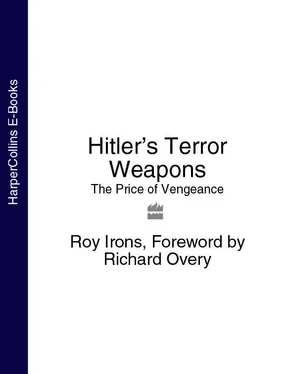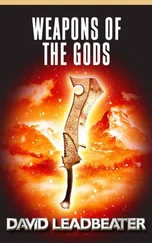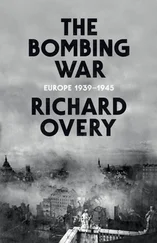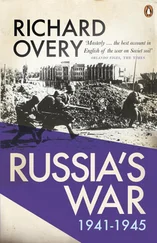On September 29 thcame an attack on the Hindenburg line by the British army. Ludendorff fell on to the floor in a fit, and afterwards, his nerve temporarily broken, took the decision to appeal for an armistice at once. On October 1 stthis was conveyed to Germany’s political leaders. On October 3rd an appeal was made to President Wilson. But by October 17th, Ludendorff, reflecting in a calmer mood, became convinced that it was possible to resist. 3
But now it was too late! The country, its will broken, was in the throes of revolution. Ludendorff was forced to resign by October 26th. Germany’s allies, utterly reliant on the staggering giant, collapsed, and revolution gripped Germany itself. The Kaiser fled, never to return. On November 9 tha republic was proclaimed – but even this was a confused affair, the Spartacist Karl Liebneckt and the Socialist Philip Scheidemann making separate and hostile proclamations. 4The fleet, fearful of being ordered to wrest the command of the sea from the giant dreadnoughts of Great Britain and the United States, mutinied. Soldiers and sailors, led by revolutionary socialists, formed councils. The home front, and the army and navy at home, were falling apart.
The new German socialist government asked for an armistice, which was secured by the surrender of 2500 heavy and 2500 field guns, 25,000 machine guns, 3000 trench mortars, 1700 aircraft and by the establishment of an allied bridgehead over the Rhine. All allied prisoners were to be released. 5This meant that they would be powerless to renew the war, whatever the peace terms they might be offered. But both Foch and General Haig, the commander of the British Expeditionary force, felt that the German army could have fought on. ‘Germany is not broken in a military sense’, said Haig; ‘During the last weeks her armies have withdrawn fighting very bravely and in excellent order …’ Foch thought that ‘the Germans could undoubtedly take up a new position, and we could not prevent it.’ Many among the allies felt the same. 6But on November 11 ththe armistice came into effect. The German frontline soldiers marched home to recriminations, bitterness, revolution and civil war.
However some, at least, of the German soldiers at the front were still of high morale; it was recounted by the South African Brigade that, after a battle which raged for all of November 10 thand up to just before the armistice, a German machine gunner ‘fired the longest burst anyone had ever heard, lasting two minutes, and ending dead at 11am. A German soldier then stood up, removed his helmet, bowed to his audience, and walked slowly away.’ 7Hermann Goering, the commander of the Richthofen squadron, ordered his pilots into the sky and threatened to strafe members of a soldier’s council who had looted his comrade’s medals. They were returned. 8Goering gave the following valedictory address to his men:
‘Never forget that the glorious German flying Corps was not defeated in the air; it was stabbed in the back by Pacifists, Communists and Jews. But don’t abandon hope. There will come a day when we shall be in a position to avenge all the treachery and humiliation we are now suffering.’ 9
Later, an embittered soldier who had endured throughout the war, wrote:
‘And so it had all been in vain. In vain all the sacrifices and privations; in vain the hunger and thirst of months which were often endless; in vain the hours in which, with mortal fear clutching at our hearts, we nevertheless did our duty; and in vain the death of two millions … Would not the graves of all the hundreds of thousands open … and send the silent mud- and blood-covered heroes back as spirits of vengeance to the homeland which had cheated them … Did all this happen so that a gang of wretched criminals could lay hands on the fatherland … ?’
The resolve of this soldier was of more sinister import for the world than the opening of graves and release of vengeful spirits. ‘I, for my part’, he wrote, ‘decided to go into politics’. His name was Adolf Hitler. 10
The Prussian war ministry declared (echoing the socialist chancellor Ebert) that ‘our field grey heroes return to the Heimat (homeland) undefeated.’… ‘But’, wrote Richard Bessel, ‘if the soldiers had returned home undefeated, then who was to blame for the tribulations of the post war years?’ 11An answer was conveniently to hand, and the cult of vengeance entered German politics. Among the former soldiers of that once formidable army, and among their descendants, arose a belief in their betrayal, ‘stabbed in the back’ by the ‘November criminals’. This would have dire consequences for the future. By strange and tortuous paths it would contribute to a huge advance in the technology and science of space research and travel; and it would lead to a likeable and gifted young girl being escorted to her death from the Amsterdam flat where she had sought refuge from her tormentors. 12These seemingly disparate events were paralleled by a renewed and more dreadful global war.
War has often been compared to chess. But the great and fundamental difference is, that in war the pieces are independent of the player and of each other – they think and have a life of their own; they have different wishes and aspirations; some might move unasked, or might refuse to move, or might simply run away or surrender. The only connection the pieces have to each other on the board of war is that they are playing their commander’s game. The commander has to infuse each piece with discipline, and with his spirit and his will.
Hitler believed that at the core of the German defeat had been the failure of morale and will. He attributed this failure to propaganda – effective propaganda by the allies, who sought to divide the Prussians from the Bavarians, blaming the militarism of the former for the war – and defective by the German government, who allowed Jews and Marxists to spread revolutionary doctrines unopposed.
On being invalided to a military hospital in 1916, Hitler had noted that ‘shirkers’ abounded, who decried the war and derided those who fought in it. Indeed, by 1918 ‘over a million wounded, disabled and discontented soldiers … choked the hospitals and lines of communication spreading alarm and despondency in the rear.’ 13However during the 1918 revolution ‘neurotic patients suddenly shed their symptoms and became revolutionary leaders.’ 14
‘There was general agreement among the doctors that four years of war had produced “mass hysteria”, which found an outlet in social upheaval. The shock of the episode left most German psychiatrists aligned with the political right long before Hitler came to power. Most importantly of all, however, German doctors vowed to pursue a much tougher and purely military policy towards war neurotics in any future war.’ 15
According to the German psychiatrists, when the German republic became unable to pay pensions to psychoneurotic war victims in 1926, ‘all the “Kriegzitterer” abruptly lost their symptoms and could function again’ 16.
Between 1914 and 1918 the German military authorities shot 71 soldiers for military offences; between 1939 and 1945 the number would be 15,000 – a whole division – for Hitler became obsessively determined that the collapse would not be repeated. A new Germany would consider the maintenance of will and morale by a pervasive and fanaticising propaganda to be a basic pillar of the state. The defeat of 1918 would be explained simply and boldly, the villains would be marked, and the lessons continually hammered home:
‘In general the art of all truly great natural leaders at all times consists among other things primarily in not dividing the attention of a people, but in concentrating it upon a single foe. The more unified the application of a people’s will to fight, the greater will be the magnetic attraction of a movement and the mightier will be the impetus of the thrust. It belongs to the genius of a great leader to make even adversaries far removed from one another seem to belong to a single category, because in weak and uncertain characters the knowledge of having different enemies can only too readily lead to the beginning of doubt in their own right.
Читать дальше






![Traudl Junge - Hitler's Last Secretary - A Firsthand Account of Life with Hitler [aka Until the Final Hour]](/books/416681/traudl-junge-hitler-s-last-secretary-a-firsthand-thumb.webp)





